Time has brought with it acceptance and though many have overcome their fear of living in the grass-surrounded Track A, others worry about “what if it happens again.”
On a recent visit to the area, the street was isolated and this newspaper found Nadir Mohamed sitting on his veranda. For Mohamed and his wife Bibi, the memories are as fresh as if it were yesterday, but they know that they need to be strong for their two remaining children. The couple lost their eldest child, Shazam Mohamed, in the January 26, 2008 attack. “For two years the memories are like yesterday… It is a loss that can never be replaced,” Mohamed said. Bibi sat on a nearby bench and she burst into tears almost as soon as her husband began to speak.
Mohamed added that the fear of “it happening again” has left him since he is a firm believer that such tragedy cannot befall Track A again. He takes comfort in the fact that the street is no longer dark–it is well lit at nights, and that members of a community policing group formed after the massacre patrol the area sometimes.
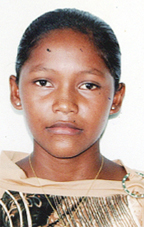
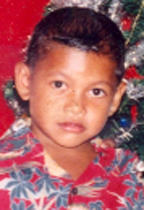
Fighting to hold back her tears, Bibi said there was a lot she wanted to say but the pain was too much. “What can we do? We can’t bring him back,” she said.
She and her husband have concealed the bullet holes and extended their home with money they received after the incident.
Despite the trauma and the loss of his brother, their son Shazaad succeeded at the National Grade Six Assessment and was awarded a place at President’s College. However, his parents wanted him close to them, so he gave up the opportunity and is attending a school close to his home.
When the gunmen discharged their volley of bullets at his home, Mohamed had sustained wounds to his legs and had to be hospitalised. The man told Stabroek News that serious damage was done and he could not return to the farming work he did to assist his family. He and his wife now have a kitchen garden and rear poultry to earn a living.
‘Finances hard’
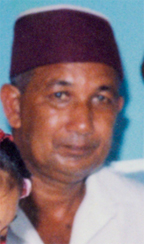
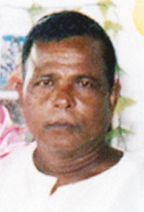
Like the Mohameds, getting money is hard for Gomattie Thomas, who lost her husband, Clarence Thomas, her 12-year-old daughter Vanessa Thomas and her son, Ron Thomas. She now has to provide for her three surviving children; she does domestic work and small-scale poultry rearing to ensure food gets on her table. “Finances hard,” she stressed.
She told Stabroek News that she tries her best to cope with her loss and thanked God for giving her the strength she needs to go on. Her seven-year-old child, who was injured in the attacks, constantly asks her questions. “Me nah hide nothing from he. Me does tell he de truth,” she said.
Thomas said when they hear squibs (firecrackers) they are still startled. When she is alone, she said, she still cries over the loss. She added that she has replaced all the wood that had bullet holes. Thomas has also done more to make her home a safer place against bandits.
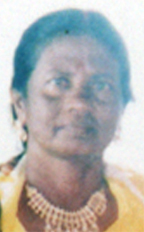
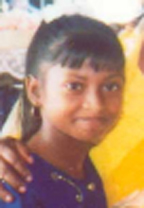
She too was happy over the installation of streets lights and formation of the policing group. However, she could not say how often they patrol Tract A.
‘Patrol coming too early’
Bibi Zulika Baksh is still afraid and not satisfied with the police patrols. She watched as her husband Shaleem Baksh had bullets pumped into his head. At first, she said, patrols were frequent but as time passed the presence of the police has decreased. “Dem patrol coming too early man. Dem does come around 9 o’clock and ya nah see them back whole night. This thing happen early in de morning,” the woman said.
Contacted about this, Divisional Commander Balram Persaud said that Lusignan is not the only community that the police have to patrol on a daily basis. He stressed that there are regular patrols on the Railway Line. “We can’t have patrol in this community 24 hours a day,” he said adding that ranks patrol “troubled areas” as much as possible. He said patrols are based on crime analyses and stressed that they need to combat crime with the resources that are available.
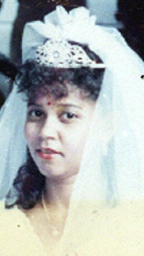

Though persons are before the court charged with the incident, investigations are ongoing Persaud stated.
Like many other residents Baksh called for the promised police station to be built so that their fears could subside. Pointing to the back of her home, the woman said that in the days prior, someone had set fire to the shoulder high grass and she was happy about it. Smiling, she said that the burning came with a lot of cleaning up but she did not mind as she now has a clear view of the land.
The gunmen gained entry into the community through the grasslands and left that way. After the massacre residents had expressed the need for the grass to be cut down but cattle farmers had objected, saying that they needed the grass for their animals.
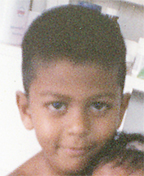
Losing three members of his family was a hard blow for Vishnu Seecharran. He lost his father, Seecharran Rooplall, 56; his mother Dhanrajie Ramsingh, 52; and his adopted sister, 11-year-old Raywattie Ramsingh. “It has been a rough two years and whenever the time comes [January 26] ah does remember them even more,” Seecharran said. He was not home at the time of the invasion.
The grief still evident, he stated that police don’t go into the area anymore and expressed satisfaction that the grass lands have been burnt to the ground.”Ah glad if some house lots could go there though,” he added.
He too was upset that many promises made in the days after the massacre were not fulfilled. While this newspaper was at the home, one of the bullet holes was still visible and Seecharran said that he hasn’t made any effort to cover or remove them.
Relocated
The grief was too much for Rajkumar Harrilall, called ‘Bobby,’ who lost his wife, 32-year-old Mohandai Gourdat and his two sons, four-year-old Seegobind Harrilall and ten-year-old Seegopaul Harrilall. He has not returned to his home. He lives at his mother’s house, located at the end of the street.
The house is locked up and, according to Harrilall, he is still overcome with sadness. “Many days ah just deh sad; can’t eat meh food. Ah can’t even sleep by myself,” he said, adding that he still cries over all he has lost. One of the hardest things for him is when he has to go to court to give evidence.
He recalled how hard he worked to make a life for his family, including being away for almost two years in Grenada, where he had gotten a job. Shortly before the killings he went to Trinidad to work. “My life changed quickly and it is painful because they were the only family ah had besides meh mother and meh siblings,” a saddened Harrilall told this newspaper.
He added that he is saddened too when he remembers all the promises that people made after the incident, none of which have been honoured. “If they couldn’t do them, then they shouldn’t have made them,” he stressed.
Residents of Tract A say that they might have been forgotten but they will never forget the day their lives were changed. They still wonder if the monument to remember the massacre victims will ever be built.




